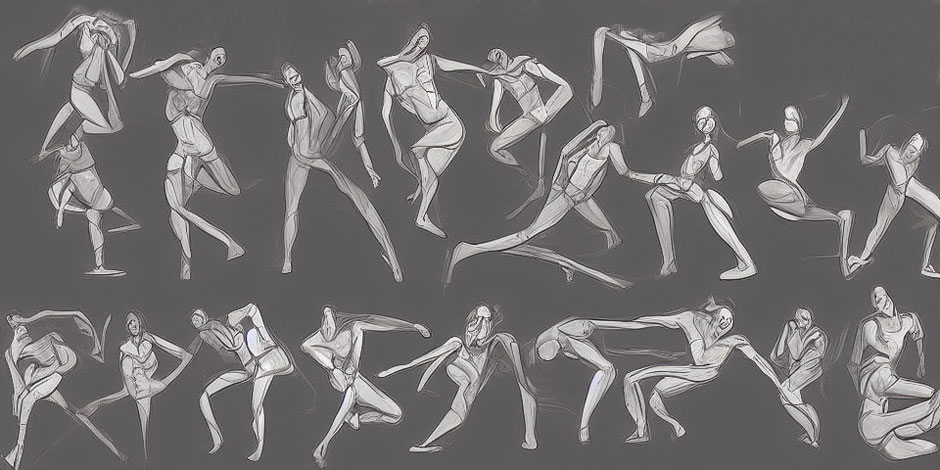Winter can be a tough time for many people. The shorter, darker days can lead to feelings of depression and low energy, and it can be difficult to find the motivation to get outside and get moving. However, there are many reasons to exercise during the winter that have nothing to do with fitness or weight loss, and in fact, regular physical activity can help improve your mood, increase your energy levels, and boost your immune system.
One of the biggest benefits of exercise is the way it can improve your mood. When you exercise, your body releases endorphins, which are chemicals that can help boost your mood and reduce stress. Exercise has been shown to be effective at reducing feelings of depression and anxiety, and can even help with more serious mental health conditions like bipolar disorder and schizophrenia. In fact, many people find that regular physical activity is an essential part of their mental health routine, helping them to feel more balanced and in control. So if you're feeling down or stressed during the winter months, getting outside for a walk, run, or other form of physical activity can be a great way to lift your spirits.
In addition to improving your mood, exercise can also help increase your energy levels. When you exercise, your body becomes more efficient at using oxygen, which can help you feel more energetic throughout the day. This is especially important during the winter, when the shorter, darker days can lead to feelings of fatigue. By getting outside for a walk or run, or finding ways to be active indoors, you can help combat those feelings of low energy and stay energized all winter long. And while it may seem counterintuitive, regular physical activity can actually help you feel more alert and awake, even if you're getting less sleep than usual. So if you're struggling to stay awake and alert during the winter months, getting moving could be just what you need to boost your energy levels.
Exercise can also help improve your sleep quality, which is important for maintaining energy levels throughout the day. Regular physical activity can help you fall asleep faster and sleep more soundly, which can help you wake up feeling refreshed and energized. This is especially important during the winter, when the change in seasons can disrupt your sleep patterns and lead to problems like insomnia. By making exercise a regular part of your routine, you can help improve your sleep quality and wake up feeling rested and ready to take on the day. And if you're struggling to get a good night's sleep due to stress or other factors, exercise can be especially helpful, as it can help reduce anxiety and improve your overall sense of well-being.
In addition to the benefits for your mood and energy levels, exercise can also help boost your immune system. Regular physical activity has been shown to help your body fight off illness, so you may be less likely to get sick during the winter months. This is especially important during the COVID-19 pandemic, when it's more important than ever to take care of your health. By getting outside and getting moving, you can help reduce your risk of getting sick and stay healthy all winter long. And if you do happen to get sick, regular physical activity can help you recover more quickly, as it can improve your body's ability to fight off infection and promote healing.
Finally, exercise can help reduce feelings of boredom or cabin fever. If you're cooped up indoors due to cold weather or other reasons, getting outside to exercise or finding ways to be active indoors can help break up the monotony and give you something to look forward to. Whether you're going for a hike in the woods, skiing or snowboarding on the slopes, or just taking a walk around your neighbourhood, getting outside and getting active can help combat feelings of boredom and keep you engaged and motivated throughout the winter months. Plus, being active can help you feel more connected to your community and the world around you, which can be especially important during the colder, more isolating months of the year.
Of course, it's important to be safe when exercising during the winter. Make sure to dress in layers and protect yourself from the cold, and be aware of any slippery surfaces or other hazards. It's also a good idea to vary your workouts and try different types of physical activity to keep things interesting and prevent boredom. Yoga, Pilates, and other indoor workouts can be a great way to stay active when it's too cold or snowy to be outside. Or, if you prefer being outdoors, try activities like cross-country skiing, ice skating, or snowshoeing to mix things up and keep things interesting.
If you're new to exercise or haven't been active in a while, it's important to start slowly and gradually increase your activity level. This can help reduce your risk of injury and make it easier to stick with your exercise routine. It's also a good idea to work with a healthcare professional or a certified personal trainer to develop a safe and effective exercise plan that meets your needs and goals.
Overall, there are many reasons to exercise during the winter that have nothing to do with fitness or weight loss. Whether you're looking to improve your mood, increase your energy levels, boost your immune system, or just break up the monotony, regular physical activity can be a great way to stay healthy, happy, and energized all winter long. So don't let the colder weather keep you from getting outside and getting moving – there are plenty of ways to stay active and enjoy the winter months, no matter what your fitness goals may be. Just make sure to take care of yourself, stay safe, and have fun!





